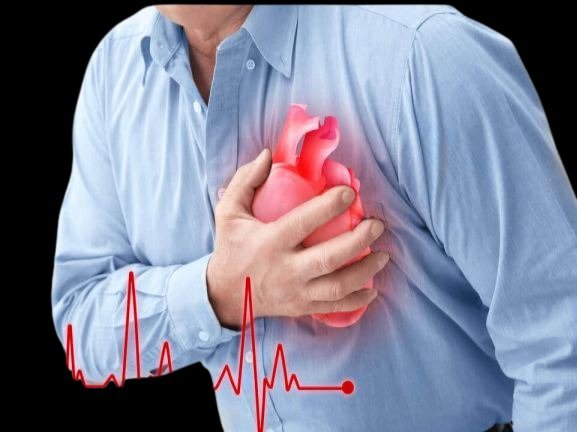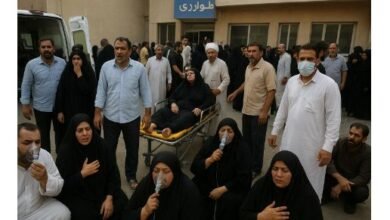
The True Post (Web News) In today’s era, every second person is suffering from heart disease and the number of deaths due to heart attacks is increasing day by day.
Here it is important to know what heart disease is and what causes it, what should be done immediately if a heart attack occurs, what are its symptoms, what is the treatment if the heart arteries become blocked, why can we avoid these diseases with timely treatment and prevention?
What are heart diseases?
“Heart disease” refers to all diseases related to the heart that affect the performance of the heart. These diseases can manifest as disorders of the blood vessels, heart muscle, heartbeat, or heart valves.
The most common disease is
coronary artery disease.
This is a disease in which the arteries that supply blood to the heart become narrowed or blocked, which prevents the heart from getting oxygen and essential nutrients, and can lead to a heart attack.
Common symptoms of heart disease include
chest pain or pressure, difficulty breathing, irregular heartbeat, fatigue, weakness, and dizziness, pain in the arms, shoulders, or jaw (especially during a heart attack).
Major causes of heart disease:
Poor diet:
A diet rich in fat and cholesterol clogs the arteries.
Smoking
: Nicotine hardens and narrows the arteries. Lack
of physical activity
affects blood flow and heart health.
Stress:
Constant stress affects the heart rate and blood pressure.
High blood pressure
makes the heart work harder, which weakens it.
Diabetes:
High blood sugar damages the arteries.
Family history:
If someone in the family has had heart disease, the risk increases.
How to get rid of heart disease?
Adopt a healthy diet, eat fiber-rich foods (vegetables, pulses, fruits), reduce salt and fat intake, avoid fast food, soft drinks and fatty meats, walk or exercise for at least 30 minutes daily, do gentle but effective exercises like yoga or cycling, completely avoid smoking and alcohol, cigarettes are poison for the heart – get rid of it immediately, control mental stress, get enough sleep (7-8 hours), do prayer, meditation, or deep breathing exercises, get regular medical check-ups, get blood pressure, sugar, cholesterol, etc. checked periodically, use medicine as advised by a doctor.
Ignoring heart diseases is like inviting death, but it is possible to get rid of these diseases through timely treatment, a positive lifestyle, and accurate information.
What should be done if the heart arteries become blocked?
When the arteries of the heart become blocked, it becomes a very dangerous condition, which is called “blocked artery of the heart” in common language and “Myocardial Infarction” or “Heart Attack” in medical terms. This condition requires immediate medical attention, because if blood does not reach the heart, the heart muscle can die, which can be fatal.
Immediate measures – If a heart attack is suspected,
symptoms of a heart attack
include severe chest pain.
| Feeling of tightness, burning or pressure, often in the middle of the chest |, pain in the left arm, neck or jaw | Pain especially radiating to the arm |
Sweating
Cold sweat, difficulty breathing
Dizziness or fainting
Extreme weakness or dizziness
Panic or fear of dying
Often accompanied by a heart attack
What to do immediately?
If you feel yourself having a heart attack, sit or lie down immediately – but do not panic.
2. Call the nearest hospital or emergency immediately (e.g. 1122 in Pakistan)
3. Chew 1 tablet of Disprin** (Aspirin 300mg) – it will thin the blood
If nitroglycerin has been prescribed, keep it under your tongue
4. Do not drive yourself – wait for an ambulance or get help.
Methods of opening a blocked heart artery
1. Angioplasty:
A special tube (catheter) is inserted into a heart artery.
A small balloon is inflated to open the artery.
A stent (mesh tube) is often inserted to prevent the artery from closing again.
2. Bypass Surgery
When an artery is severely blocked, a new path is created to bring blood to the heart (using a vein in the arm or leg).
Medications
Blood thinners (Aspirin, Clopidogrel)
Cholesterol-lowering drugs (Statins)
Medicines to control blood pressure and heart rate




